A Guide to Choosing the Best MVR(Mechanical Vapor Recompression) Evaporator for Your Production Needs
When it comes to industrial evaporation processes, choosing the right evaporator is critical for improving operational efficiency, reducing energy consumption, and meeting production goals. Mechanical Vapor Recompression (MVR) evaporators are increasingly popular due to their impressive energy savings, high thermal efficiency, and low environmental impact. This guide will walk you through the essential factors to consider when selecting the best MVR evaporator for your specific production needs.
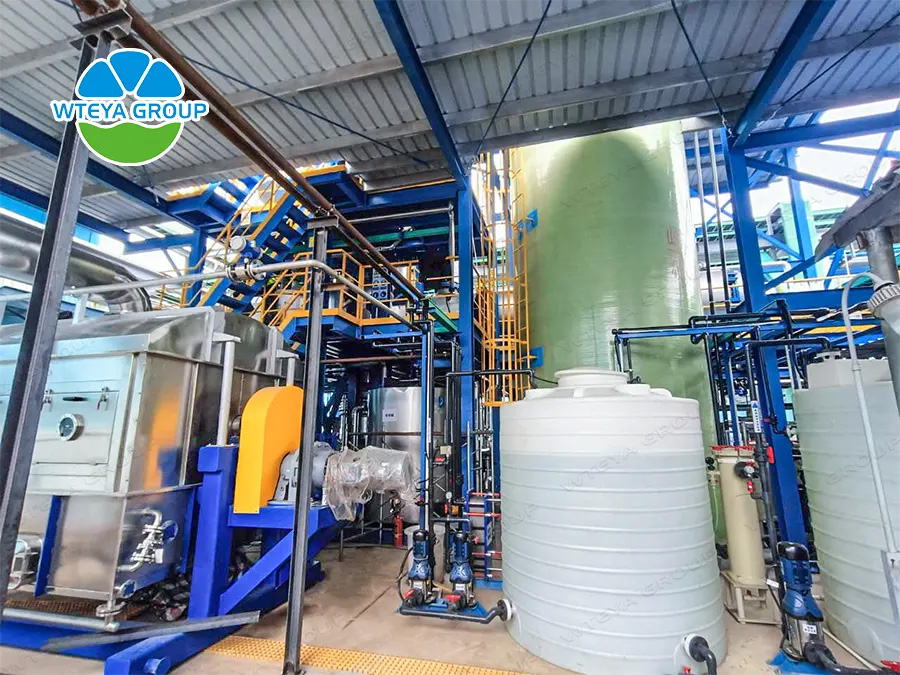
Key Selling Points of MVR Evaporators
Energy Efficiency: One of the standout features of MVR evaporators is their ability to reuse vapor to generate heat. This closed-loop system dramatically reduces energy consumption, making MVR evaporators more energy-efficient than traditional evaporation methods.
Cost Savings: The energy-efficient design of MVR evaporators leads to significant cost savings over time. By reducing the need for external heat sources such as steam or gas, these systems lower operational costs, making them a cost-effective solution for industries with high evaporation demands.
Sustainability: MVR evaporators contribute to sustainability efforts by minimizing energy usage and CO2 emissions. With global pressure on industries to reduce their carbon footprints, adopting MVR technology is a step toward more eco-friendly and resource-efficient operations.
Compact Design: Compared to other evaporation systems, MVR evaporators are more compact and require less space, making them ideal for facilities with limited room or for industries looking to optimize floor space.
Long-Term Reliability: MVR systems are designed to be highly durable and low-maintenance. The closed-loop process reduces the need for frequent repairs and maintenance, improving the overall reliability of the system.
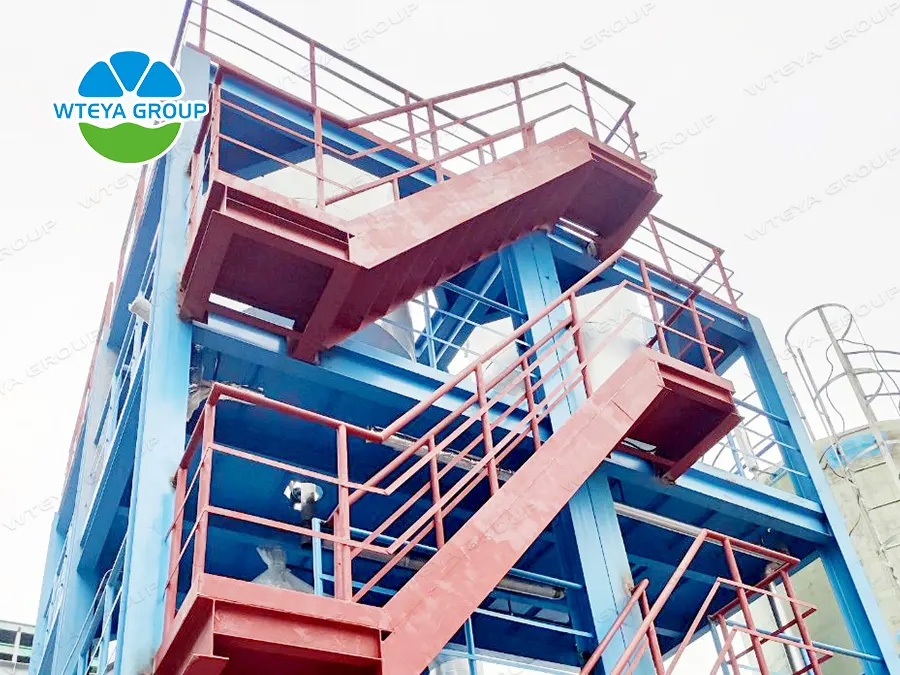
Addressing Industry Pain Points
Many industries that rely on evaporation for concentration processes face challenges with high energy consumption, fluctuating operational costs, and maintenance requirements. MVR evaporators offer effective solutions to these problems:
Energy-Intensive Operations: Traditional evaporation systems often require large amounts of external energy (e.g., steam or electricity) to achieve desired results, which can be costly and inefficient. MVR evaporators, on the other hand, recycle vapor within the system, reducing the need for external energy input and cutting down on operating costs.
Operational Inefficiency: Older evaporation technologies may experience performance variability, especially when dependent on external heat sources. MVR evaporators offer consistent performance by reusing vapor, ensuring more stable and efficient operations.
High Maintenance Costs: With fewer moving parts and a simple design, MVR evaporators generally require less maintenance compared to other evaporation systems. This leads to lower repair costs and reduced downtime.
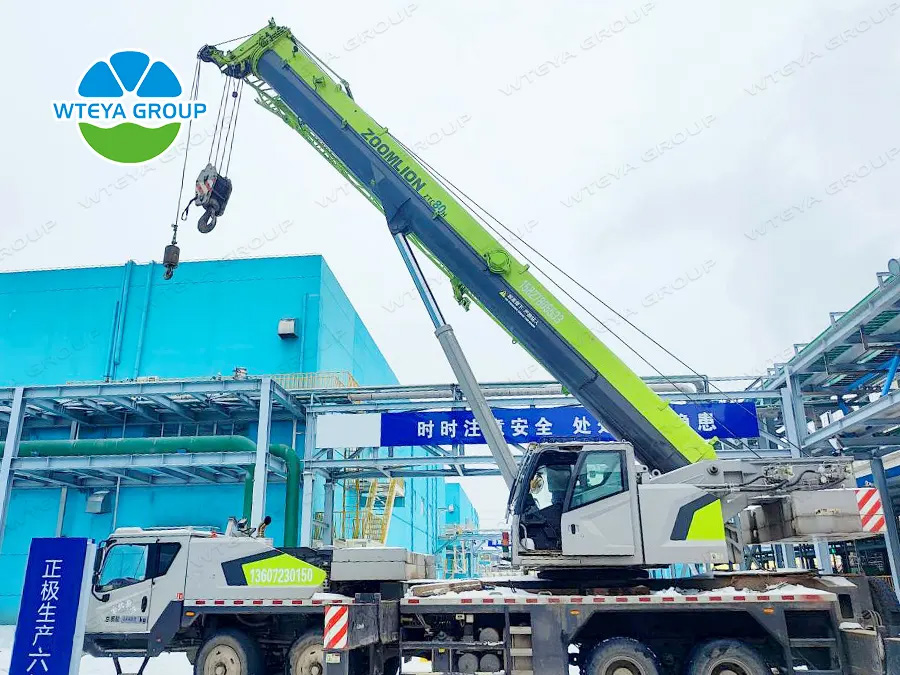
Applications of MVR Evaporators
MVR evaporators are widely used in various industries where energy efficiency, high-volume evaporation, and process reliability are critical. Some of the most common applications include:
Chemical and Pharmaceutical Industries: In the chemical and pharmaceutical sectors, MVR evaporators are used to concentrate chemicals, solvents, and pharmaceuticals while maintaining quality and purity. The energy savings and precise control make them ideal for high-stakes production environments.
Food and Beverage Production: MVR systems are perfect for concentrating juices, dairy products, and other liquid foods. Their ability to maintain product quality while using less energy makes them an excellent choice for food processing plants.
Wastewater Treatment: MVR evaporators are effective in wastewater treatment plants, where they help concentrate and treat waste streams, reducing the volume of wastewater and improving disposal efficiency.
Water Desalination: MVR evaporators are used in desalination processes to remove excess water from brine, making them useful in water purification and desalination plants.
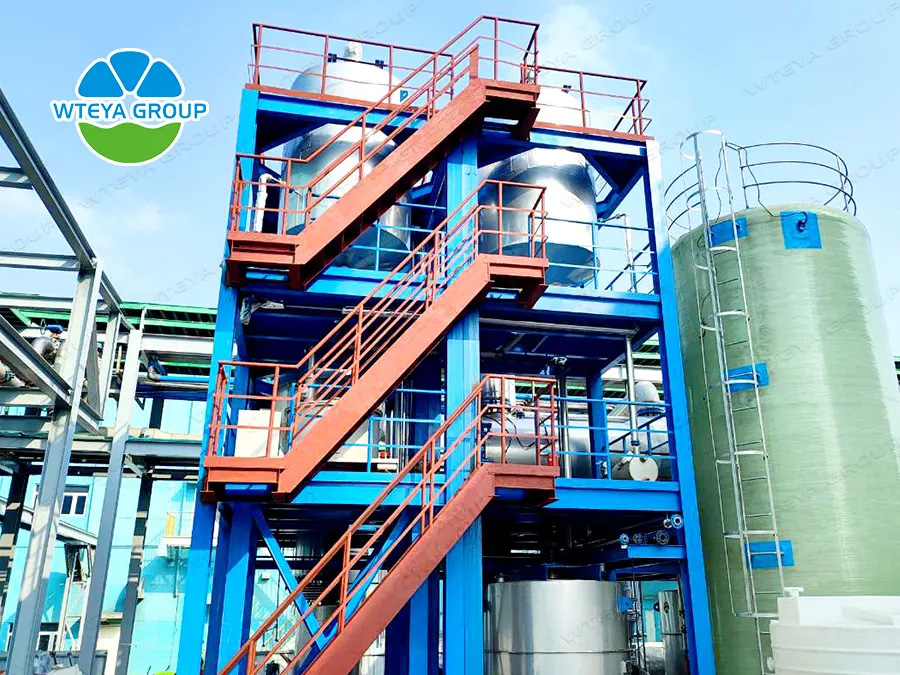
Advantages of MVR Evaporators
High Thermal Efficiency: MVR evaporators offer thermal efficiencies of 80% to 90%, which is significantly higher than traditional evaporation methods. This means more of the energy used in the process is converted into useful work, reducing overall energy consumption.
Low Operating Costs: By recycling heat and vapor, MVR systems minimize the need for external energy sources like steam or gas, cutting down on fuel costs and reducing utility bills.
Flexible Capacity: MVR evaporators are scalable and can be customized to meet the evaporation demands of different industries. Whether you're working with small batches or large volumes, MVR systems can be adapted to fit your production needs.
Faster Payback Period: Due to the significant energy savings and reduced maintenance costs, the return on investment (ROI) for MVR evaporators is typically quicker than for traditional evaporation systems. This makes them an attractive choice for companies looking to maximize efficiency and profitability.
High-Quality Output: MVR systems are particularly beneficial for applications where high-quality products are crucial. By maintaining consistent operational parameters, they ensure that the final concentrated product meets strict quality standards.
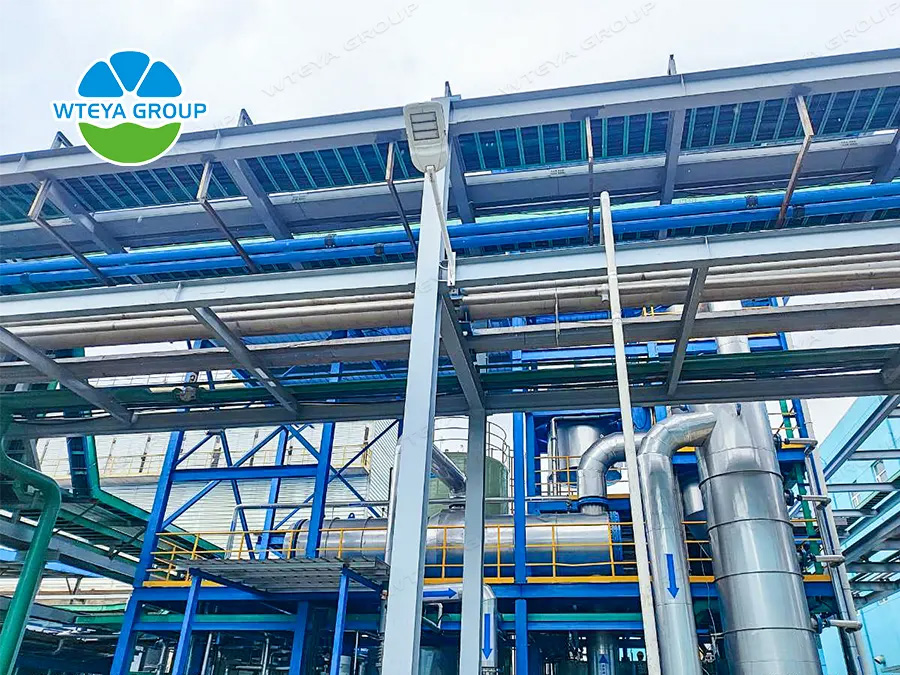
Design Features of MVR Evaporators
Closed-Loop Vapor Compression: MVR evaporators work by compressing vapor to increase its temperature, which is then used to heat the incoming liquid. This process makes MVR systems highly efficient in utilizing available energy, reducing the need for external heat sources.
Compact and Modular Design: MVR evaporators have a compact footprint and modular components that can be easily scaled up or down based on production needs. This flexibility makes them ideal for both small-scale operations and large industrial plants.
Low Maintenance Requirements: The simple design of MVR systems results in fewer moving parts, which reduces wear and tear. This translates into lower maintenance costs and a more reliable, longer-lasting system.
Energy-Saving Control Systems: MVR evaporators often come equipped with advanced control systems that monitor and adjust operating parameters to ensure optimal efficiency and energy use. These systems help maintain a consistent performance level while reducing energy waste.
How MVR Evaporators Compare to Other Evaporation Systems
Multiple Effect Evaporators (MEE): While both MVR and MEE systems aim to improve energy efficiency, MVR evaporators offer superior energy savings by reusing vapor internally, whereas MEE systems rely on multiple stages of evaporation, still requiring external heat sources.
Thermal Evaporators: Traditional thermal evaporators often use direct heating methods (e.g., steam or gas), which can be costly and inefficient. MVR systems, however, recycle vapor to produce heat, making them more energy-efficient and cost-effective over time.
Reverse Osmosis (RO) Systems: Reverse osmosis systems are often used for desalination and water purification. While they are effective for low-concentration liquid treatments, MVR evaporators are more suitable for high-concentration applications like chemical and food processing.
The Value of MVR Evaporators
Investing in MVR evaporators brings numerous benefits to industries looking to optimize energy consumption and improve production efficiency. The combination of energy savings, lower operational costs, and consistent performance offers a compelling value proposition. MVR systems are particularly well-suited for industries where large-scale evaporation processes are necessary, and where quality, reliability, and sustainability are top priorities.
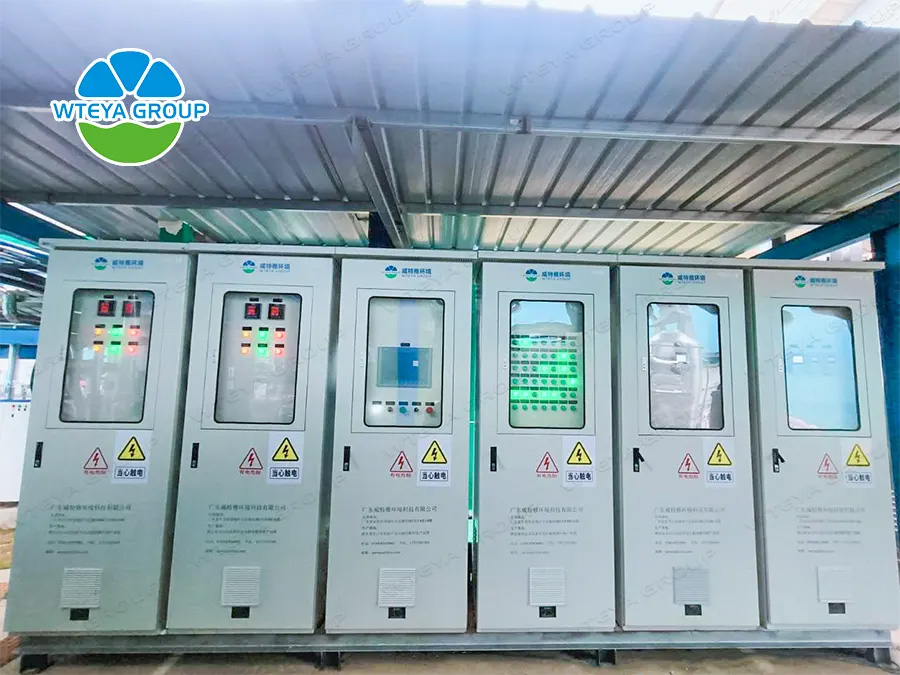
Conclusion: Choosing the Best MVR Evaporator for Your Needs
Selecting the right MVR evaporator for your production needs involves considering factors such as energy efficiency, capacity requirements, space constraints, and industry-specific demands. By evaluating these aspects, you can determine whether an MVR evaporator is the right fit for your operation and which model will best meet your needs.
Whether you’re in the food, chemical, pharmaceutical, or wastewater treatment industry, MVR evaporators offer unmatched energy efficiency, low maintenance, and cost savings. Investing in the right MVR technology can result in significant long-term benefits, improving both your bottom line and your environmental footprint.







